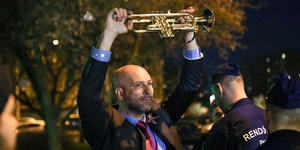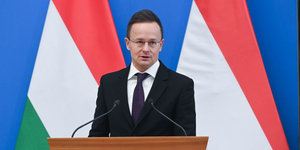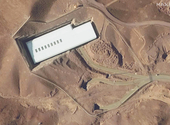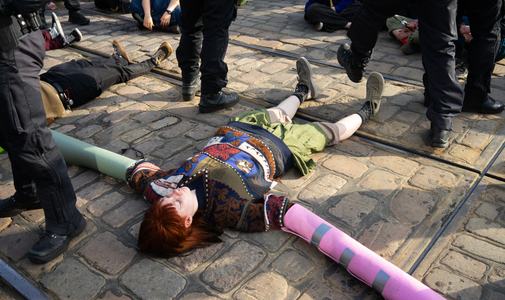The fourth metro delayed again
Now even Gabor Demszky, the mayor of Budapest, has accepted that the project to build a fourth metro line is in "real difficulties." Hidepito, one of the contractors and a subsidiary of France's Vinci Construction, has announced that the station on Fovam ter will be finished a year later than promised.
The completion date for the new metro line had already slipped twice in 2007. Hidepito, which is charging E47m to build the Fovam ter station, announced last year that it would need 200 weeks to complete the manufacturing works as opposed to the 140 weeks promised. This means the construction works, which began in June 2007, will last until well after the final deadline of mid-2011 that the mayor promised for the Kelenfold-Keleti section of the line. The mayor told the city assembly before Christmas that he regarded further delays or cost overruns as unacceptable - meaning he will need to look for another contractor. He did not say whether the awkward situation was the result of a flaw in the contract or with the contractor, or whether unexpected problems had come up.
But it makes a big difference. Under certain circumstances, the city might be able to claim compensation from the contractor, while under others it might be obliged to pay the difference. Under the contract, a missed deadline costs the contractor a fine of 20 per cent of the net construction cost of E39.4m. However, if a delay is due to "unforeseeable physical circumstances", the contractor can ask for an extended deadline - and if the commissioning party considers the claim justified, it must pay any extra costs. Hidepito has not yet spoken about the affair, but unofficially it has been claimed that test drills revealed geological problems with the site about which the city has been informed. But Laszlo Becker, the city's commissioner for the metro, told HVG that no unforeseeable circumstances had arisen. But the problem cannot be a new one, since the commissioner wrote in a report last November that the construction works were in a critical condition. Hidepito has repeatedly been ordered to speed up its construction works, to little effect. Hidepito asked to move to a new construction technique in September, saying they had found a lower-risk way of constructing station platforms that run under the Danube. But the commissioner said the plan needed further development and would be more expensive even though it would shorten the construction delay.
© Judit Müller |
Working out who bears the blame will take intensive legal argument if the two sides fail to reach an amicable agreement. Interpretation may present difficulties. The original contract specified that work on the station would start in February 2006, along with the construction of the line itself. But the contract was only signed in July 2006, while the city government took a further 201 days to obtain construction permits. Istvan Tarlos, leader of the opposition Fidesz group in the city assembly, asked whether the city had signed a contract with no formal deadline. He did not receive a response. It is true that the contract on the project's website contains no starting or completion date - stating only that 140 weeks are allowed. "We specified the deadlines in the minuets of the negotiations, and the 140-week period is counted from the moment the construction site was passed to the contractor in January 2007," says Ferenc Olti, Budapest Transport's deputy chief executive in charge of the metro.
Negotiations were still continuing as we went to press, but if the deadline is not moved, the city must cancel its contract with Hidepito. In this case, the city could claim compensation, according to Becker. But it cannot cut off all links with Hidepito, if only because, as a member of the Bamco consortium, it is involved in drilling tunnels along the entire route of the line. Negotiations are likely to be difficult, because if the city's mistakes lead to work being slowed, the consortium can levy a fine.
IBOLYA F. VITÉZ



















